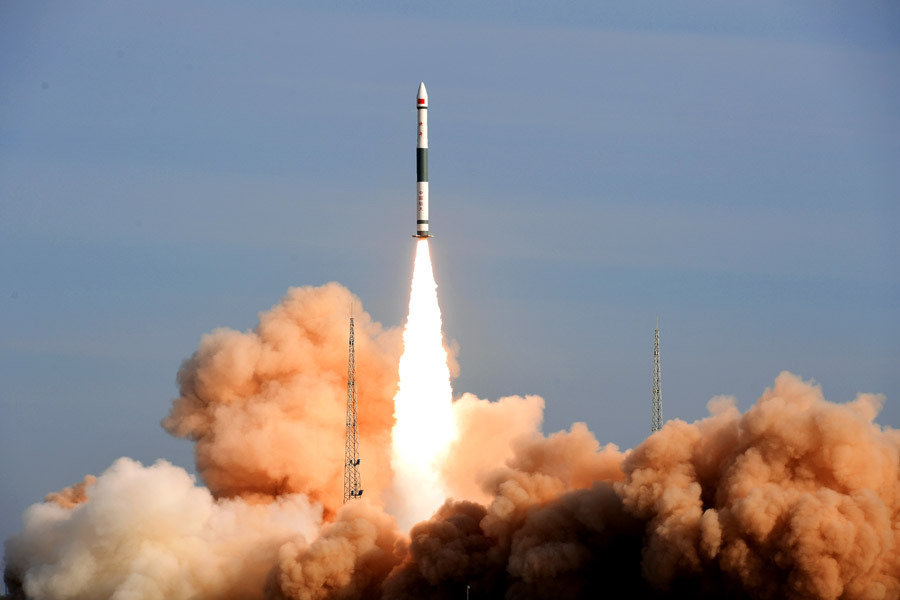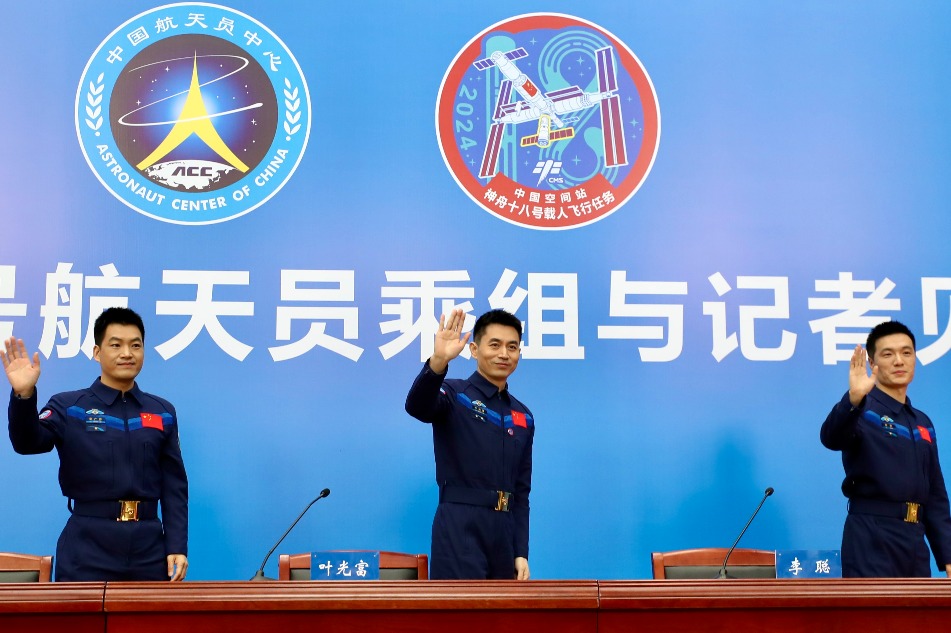The news that made waves last year


China's commercial space industry prepares for liftoff
Reporter's log: Zhao Lei
Last year, I conducted three interviews with Zhang Di, a senior rocket scientist and a vice-president of the Fourth Academy of the China Aerospace Science Industry Corp in Wuhan, Hubei province.
We had detailed discussions about future plans and the development of the Kuaizhou solid-propellant carrier rocket family.
We also discussed Zhang's thoughts about the road map for China's commercial space sector, which basically consists of launch activities and the development and production of spacecraft financed by entities other than government departments or military agencies.
Despite China's history of space exploration, which can be traced back to the mid-1950s, commercial space is a new idea in the country because State-owned contractors have spent most of their time and resources on government-assigned tasks, such as spectacular manned programs or eye-catching lunar expeditions. These companies started making use of their knowledge and experience to produce civilian products decades ago, but seem to have neglected the commercial application of rockets and satellites.
Things have changed in the past three years.
In 2015, related State-owned companies began to realize that the commercial space sector is not only a popular concept but can also provide lucrative contracts.
The country's booming internet, e-commerce and communications markets are calling for stronger space-based networks, which has generated great demand for domestically made satellites and carrier rockets.
Zhang's academy is known for designing advanced projectiles, and many of its products are deployed by the military.
Having seen the opportunities in the commercial space sector, it will employ the Kuaizhou family of rockets, developed as "rapid-response" tools to launch satellites at short notice, to fulfill contracts.
When Zhang spoke about the Kuaizhou family and industry prospects during our meetings, I was interested to note that he was quite familiar with the rules and conditions in the sector, which was a stark contrast to the image of the stereotypical Chinese missile designer. Zhang's academy welcomes competition from State-owned or private players, and is also willing to join hands with them to "make the cake bigger", he said, referring to the market.
He added that private suppliers have already been invited to participate in the manufacture of the Kuaizhou range.
I was also surprised by Zhang's understanding of business patterns, equity trading and fundraising, especially after I saw him in formal attire standing among a group of private investors and telling them why his rocket business would generate money for them.
Many reporters who write about China's space sector have often asked two fundamental questions: When will China have its equivalents of SpaceX and Orbital ATK? And when will our space industry become as innovative and competitive as that of the United States?
Well, I believe the answers have started to emerge.
As long as the government continues to support the growth of the commercial space sector, the leaders of State-owned space enterprises continue to respect and follow market rules and private companies continue to invest in space science and technology, it will only be a matter of time before China stands shoulder to shoulder with the United States in the sector.
- Shanghai Disney Resort ushers in the Year of the Snake with festive celebrations
- Chinese researchers develop green, effective pesticide formulation
- 1,211 aftershocks detected after Xizang 6.8-magnitude quake
- Great Wall's most dangerous section to launch 1st tourist route
- Xi's special envoy to attend inauguration of Venezuela's president
- Touching moment as kangaroo parents save curious joey





































